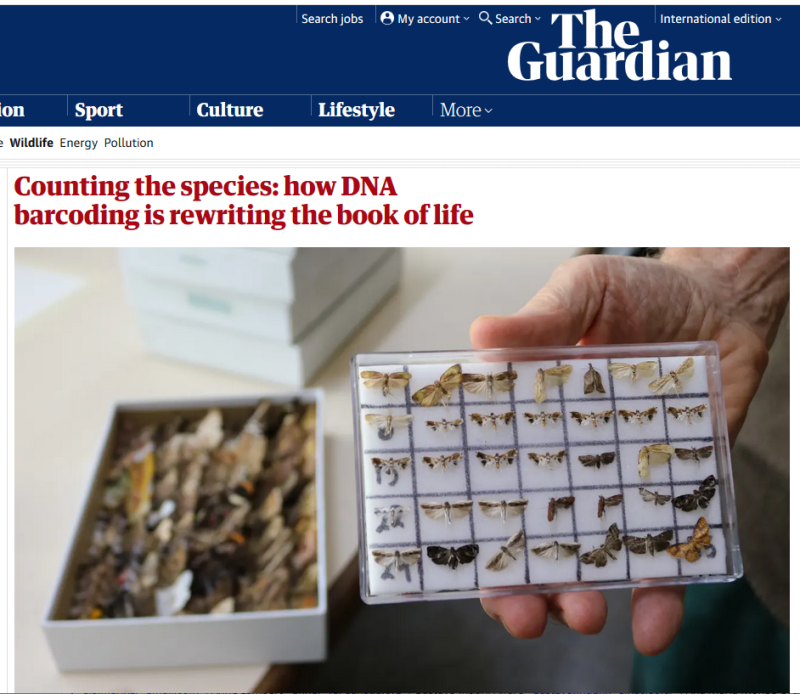DNA barcoding, developed in Canada, explored by Guardian newspaper

October 7, 2020 — An article in today’s Guardian newspaper looks at pioneering work done at the University of Guelph and at Costa Rica’s Area de Conservación Guanacaste, where scientific data is collected on the myriad species found there as part of conservation efforts.
Dr. Paul Hebert of Guelph University developed a barcoding process that streamlines taxonomic identification – a process that tropical ecologist Daniel Janzen compares in importance to the discovery of DNA. The International Barcode of Life, based in Guelph, has identified around 750,000 species to date. The Guardian points out that discoveries in medicine, agriculture, food, engineering and even beauty products are hidden in the genomes of the species that are being barcoded. It reports that Hebert has turned his attention to the creation of a global biosurveillance system underpinned by barcoding that will continuously monitor the planet and check the health of global ecosystems — information that is sorely lacking. Dan Janzen, Winnie Hallwachs and colleagues are campaigning to have Costa Rica become the most extensively barcoded country on Earth, with a new project called BioAlfa.
Parataxonomists at the Area de Conservación Guanacaste carry out work of collecting, rearing and documenting specimens. ICFC supports several positions for parataxonomists, who are all drawn from the local community. Often with limited formal education, parataxonomists become world experts in particular taxonomic groups, regularly finding species new to science. Understanding ecological relationships forms part of their work.
International Conservation Fund of Canada Copyright © 2009-2025
Registered Canadian charity # 85247 8189 RR0001
